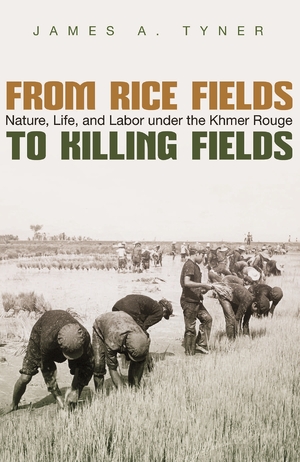"Isidor Walimann and Michael Dobkowski have assembled a series of hardhitting analyses calling attention to the most dire conflicts facing us in the coming era. The issues relating to genocide and mass death will be unpleasant and disturbing to many readers, but they are important warnings—hopefully, not too late. The goal is still to inform and motivate human action to prevent potentially tragic events from being fully realized. After the Cold War, complacency and fatalism are definitely not appropriate. This collection provides the antidote to both."—John D. Nagle, Professor of Political Science, Syracuse University
Description
Michael Dobkowski and Isidor Walliman have edited a book that, although ominous, is not a fatalistic look at the future. The Coming Age of Scarcity lays out the perils of not recognizing the reality of genocide or of acknowledging the full implications of warfare.
Showing how scarcity and surplus populations can lead to disaster, The Coming Age of Scarcity is about evil. It tells of “ethnic cleansing” and excavates the world’s expanding killing fields. The writers in this volume are all too aware that the future suggests that present-day population growth, land resources, energy consumption, and per capita consumption cannot be sustained without leading to greater catastrophes.
The essays in this volume ask: What is the solution in the face of mass death and genocide? As philosopher John K. Roth says in the Foreword, “The essays can sensitize us against despair and indifference because history shows that human-made mass death and genocide are not inevitable, and no events related to them will ever be.”
Table of Contents
Foreword, John K. Roth
Acknowledgments
Contributors
The Coming Age Of Scarcity: An Introduction, Michael N. Dobkowski and Isidor Wallimann
Part One: Statement of the Problem
Introduction
The Threat To The Underclass, John B. Cobb, Jr.
The Paradox of Global Development and the Necessary Collapse of Modern Industrial Civilization, Chris H. Lewis
Part Two: Scarcity and Conflict
Introduction
Biophysical Limits to Industrialization: Prospects for the Twenty-First Century, John M. Gowdy
Our Unsustainable Society: Basic Causes, Interconnections, and Solutions, Ted Trainer
Defining the New American Community: A Slide to Tribalism? Virginia Abernethy
The Vicious Circle Principle: A Contribution to the Theory of Population and Development, Craig Dilworth
The Social Impact of Scarcity: The Political Responses of Institutionally Developed Societies, Kurt Finsterbusch
Competition, Expansion, and Reaction: The Foundations of Contemporary Conflict, Joseph A. Tainter
Part Three: Case Studies of Scarcity and Mass Death
Introduction
Scarcity and Genocide, Roger W. Smith
Postcolonial Genocide: Scarcity, Ethnicity, and Mass Death in Rwanda, David Norman Smith
Intrastate Conflict and Sustainable Development: Lessons from Bosnia, Somalia, And Haiti, Waltraud Queiser Morales
Scarcity, Genocide, and the Postmodern Individual, Leon Rappoport
Critical Reflections On The Doomsday, Apocalyptic Vision, Craig A. Rimmerman
Works Cited
Index
About the Author
Michael N. Dobkowski is professor of religious studies at Hobart and William Smith Colleges. He is author of The Tarnished Dream: The Basis of American Anti-Semitism, The Politics of lndifference: Documentary History of Holocaust Victims in America, and Jewish American Voluntary Organizations.
Isidor Wallimann is senior lecturer in sociology at the School of Social Work, Basel, Switzerland, and a lecturer at the University of Fribourg. He is author of Estrangrement: Marx's Conception of Human Nature and the Division
of Labor.
March 1998



